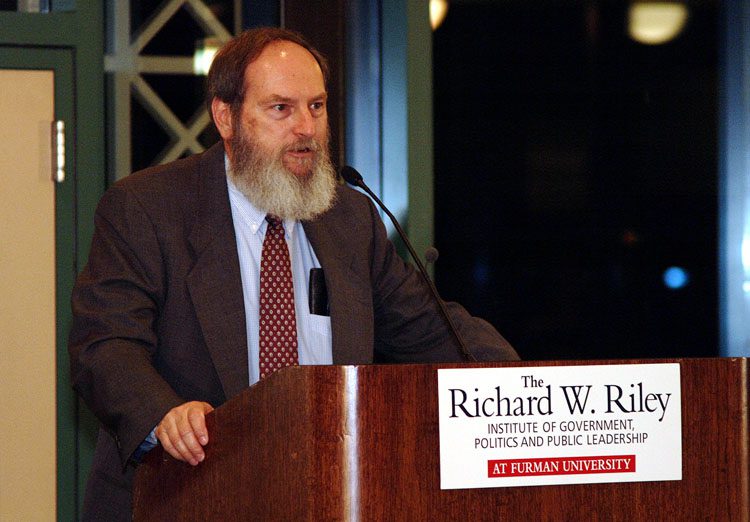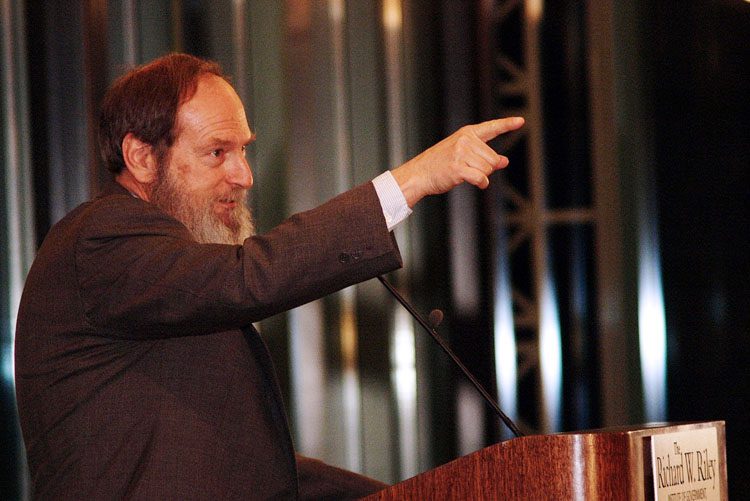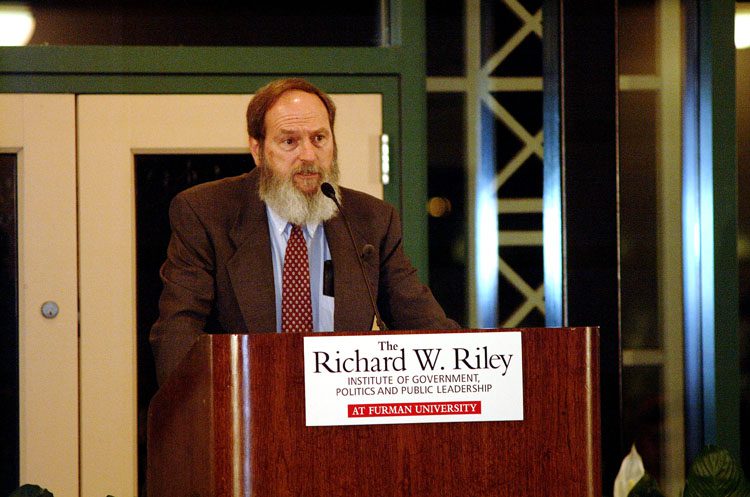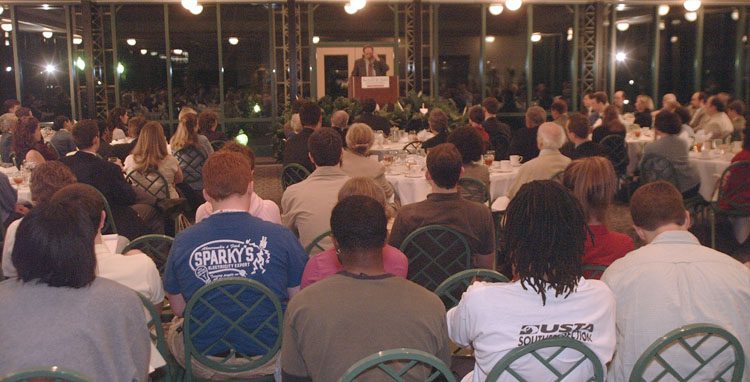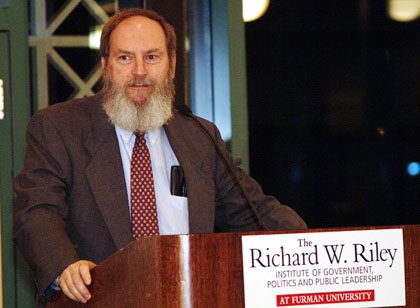
Fellows in Residence
David Shipler
Woodrow Wilson Fellow in Residence
Pulitzer Prize-Winning Author and
Former Foreign Correspondent of The New York Times
David Shipler visited Furman’s campus from March 23-28, 2003 as a Riley Institute Woodrow Wilson Fellow in Residence. On Wednesday, March 26th, Shipler delivered an address, “Beyond Civil Rights: Hidden Stereotyping by Blacks and Whites,” in Hartness Pavilion.
A native of Chatham, New Jersey, David Shipler earned his bachelor degree from Dartmouth College in 1964 and now serves as a member of the Dartmouth College Board of Trustees. Upon graduation, Shipler joined the United States Navy as an officer and served on a destroyer from 1964-66. Following his stint in the US Navy, Shipler joined The New York Times as a news clerk in 1966 and was promoted to city staff report in 1968, covering housing, poverty and politics and winning awards from the American Political Science Association and the New York Newspaper Guild.
Shipler’s has spent an extensive portion of his professional career overseas. From 1973-75, Shipler served as a New York Times correspondent in Saigon, covering South Vietnam, Cambodia, Laos and Thailand, while also reporting from Burma. Shipler spent a semester in 1975 at the Russian Institute of Columbia University studying Russian language and Soviet politics, economics and history to prepare for his assignment as a correspondent in the Moscow Bureau from 1975-79, where he served as Moscow Bureau Chief from 1977-79. While there, Shipler wrote the best-seller Russia: Broken Idols, Solemn Dreams.
From 1979-84, Shipler served as Bureau Chief of The New York Times in Jerusalem and was co-recipient of the 1983 George Polk Award fro coverage of the Lebanon War. He then spent a year, 1984-85, as a visiting scholar at the Brookings Institution in Washington to write “Arab and Jew: Wounded Spirits in a Promised Land.” After completing the book, Shipler served as Chief Diplomatic Correspondent in the Washington Bureau of The New York Times until 1988. From 1988-90 he was a senior associate at the Carnegie Endowment for International Peace, writing on transitions to democracy in Russia and Eastern Europe for The New Yorker and other publications.
